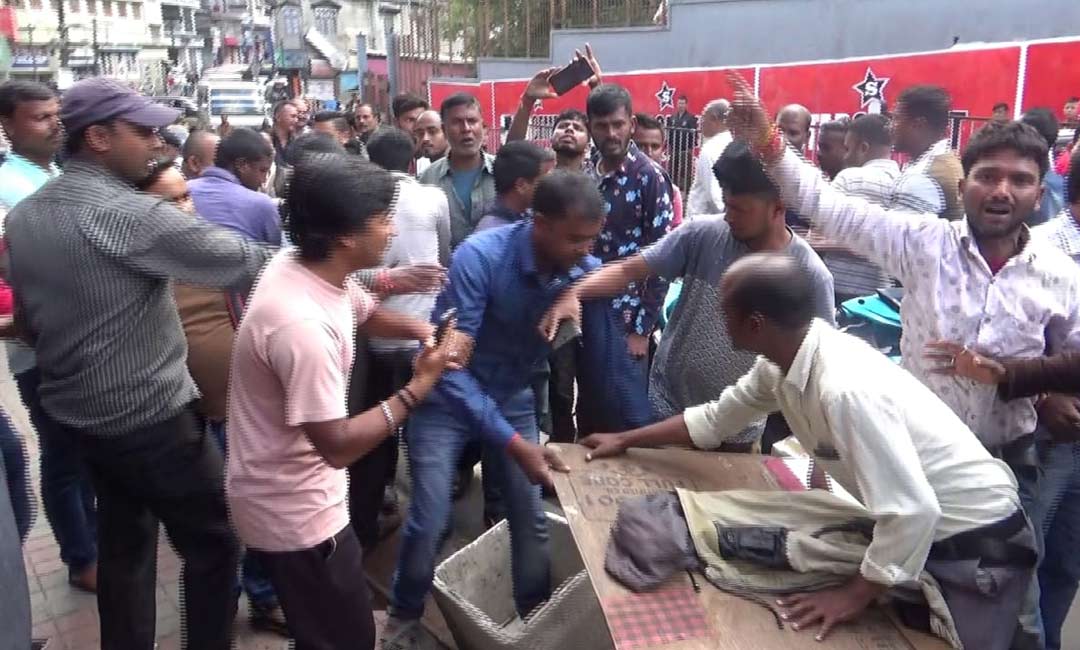KHADC officials retreated due to stiff opposition from non tribal hawkers

SHILLONG: The eviction drive against illegal non tribal hawkers by Khasi Hills Autonomous District Council (KHADC) in Motphran area this afternoon was met with stiff opposition from a group of illegal non-tribal hawkers.
This came after 17 days of issuing a public notice which prohibits hawking by non-tribals without any trade license.
Some of the non-tribal hawkers have strongly opposed the eviction drive carried out by the enforcement wing of the KHADC.
The eviction drive was carried out at Iew Mawlong, Motphran and GS Road.
Terming the exercise as a success, KHADC executive member in-charge Trade Paul Lyngdoh told reporters that the district council was working under the Trading By Non-Tribal Regulation Act, 1954 and the rules framed there under in 1959 and subsequently amended in 2019

“The council works within the parameters of the Act and we cannot go beyond it,” he said.
He also said that for those hawkers other than non-tribals, the state government has jurisdiction over them under the Meghalaya Public Premises (Eviction or Unauthorised Occupants) Act, 1980.
Lyngdoh also said that the eviction for the time being has been put on hold due to the paucity of police personnel who are currently being deployed for the visit of the President of the country, Ramnath Kovind.
The President is scheduled to attend the XXVI convocation of North-Eastern Hill University in Shillong on November 4.

“The eviction drive has been put on hold for the moment because we want make sure that what we are doing is a success and therefore we need to support of the police department,” Lyngdoh said.
The EM, in-charge Trade said that the council wants to ensure that during the eviction drive there should not be breach of peace and the officers of the Enforcement Wing of the KHADC are not obstructed from performing their duties.

He also pointed out that in the recent notification of the KHADC, it has been clearly mentioned that any non-tribal hawkers who has licence the council will consider them on the ground that he does not obstruct the free movement of the public and secondly on the premise the business that he is carrying out does not affect the health of the public.


Leave a Reply